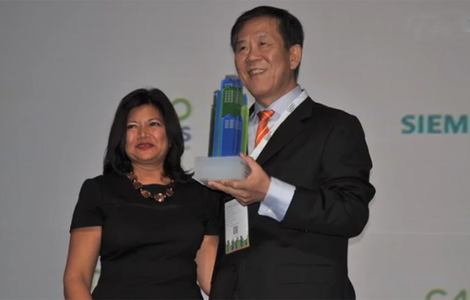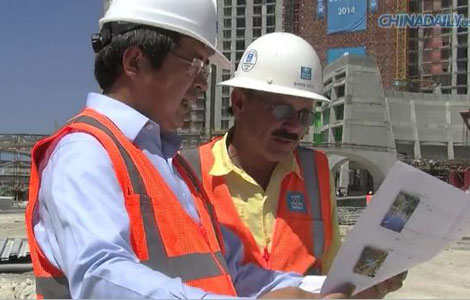Stem cell donors sought
Updated: 2014-10-14 02:48
(China Daily USA)
|
||||||||
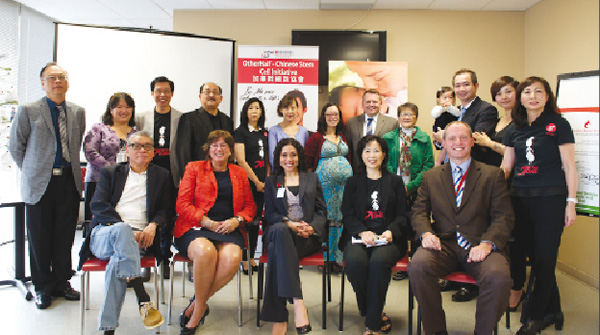 |
|
Attending a news conference in Vancouver on Monday to announce the expanded partnership between "OtherHalf" and Canadian Blood Services (CBS) were (from left, front row): Andrew Go, OtherHalf; Margaret Miedema, Canadian Blood Services (CBS); Dr. Heidi Elmoazzen, CBS; Susan Go, OtherHalf; and Bill Coleman, CBS. Back row (from left): Bob Ip, Chinese Cultural Centre; Becky Luk, CBS; Calvin Wong, Raymond Wong, Lions Club; Nora Lee, OtherHalf; Christina Law, current patient; Helena Taubert, expectant mother; David Patterson, CBS; Celia Lam, OtherHalf community supporter; Alfred Chien and wife Ada, OtherHalf; and Penny Chan, OtherHalf. Provided to Cina Daily |
The Chinese stem-cell initiative "OtherHalf" and Canadian Blood Services (CBS) will expand their partnership to encourage mothers of Chinese descent to donate their infants' cord blood to help people with diseases like leukemia and lymphoma.
"Many critically-ill patients are in urgent need of a life-saving transplant and can benefit from umbilical cord blood, which is rich with the blood-forming stem cells," said Dr. Heidi Elmoazzen, director of the national public cord blood bank at CBS in Ottawa.
Toronto-based OtherHalf and CBS announced their "Partnership Strikes a Cord" on Monday in Vancouver. The two groups already work together with Canada's OneMatch Stem Cell and Marrow Network, a national registry for matching volunteer donors with patients who need stem-cell transplants.
Elmoazzen told China Daily in an interview that a cord-blood donation is completely safe for mother and baby. "No blood is taken from the baby. It's only taken from the umbilical cord and placenta after the baby is born. The umbilical cord and placenta are discarded after birth. The labor and delivery will not be affected," she said.
In addition to obtaining cord blood, the new initiative will help to expand the OneMatch registry, which matches donors and those needing a life-saving stem-cell transplant.
A stem cell transplant — also called a blood or marrow transplant — is the injection of healthy stem cells into a body to replace damaged or diseased stem cells.
Donor and recipient stem cells must be a close match for a successful transplant, which means patients are more likely to find a match within their own ethnic background. Only about 25 to 30 percent of those needing a stem-cell transplant find a successful match from their family members. Seventy to 75 percent must search for a match among the public.
Chinese and other ethnic minorities are underrepresented in the registry. That is what inspired Toronto resident Susan Go to start the OtherHalf in 2008.
In 2008, the number of Chinese donors in the Canadian registry was about 2,100, or less than 1 percent of registrants. By June of this year, the number of was over 25,000, or about 7 percent of registrants.
According to OneMatch Stem Cell and Marrow Network, as of April 30 of this year, 21 Chinese who registered with the national registry have donated their stem cells to patients since 2008.
"We will be helping them (OneMatch) to get more Chinese registrants," said Penny Chan, co-chair of the OtherHalf's Vancouver chapter with Nora Lee. "By getting involved with parents at the birth of a child, we can help to spread the word in the Chinese community and also assist with fundraising for us and Canadian Blood Services."
Chan believes that the lack of Chinese participants in both the stem cell registry and the cord blood bank is about awareness and a lack of information. "I think once Chinese families realize the life-saving potential of the blood and the registry they will respond," she said.
"We are not asking for money. All we want is for people to take an active part in helping to save lives," she said.
And she points to Christina Law, a Vancouver resident who after battling a form of leukemia for 10 years was diagnosed with Myelodysplastic Syndrome in 2012. She needed a bone-marrow transplant and found a suitable donor through OneMatch.
"If we can add just one potential donor to that registry every day, just think what a difference it would make for patients like Christina," she said.
paulwelitzkin@chinadailyusa.com
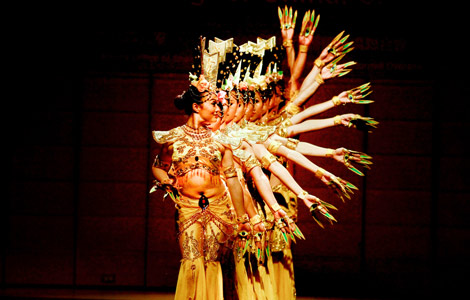
 Chinese art troupe displays power to overcome obstacles
Chinese art troupe displays power to overcome obstacles
 30 most beautiful counties in China
30 most beautiful counties in China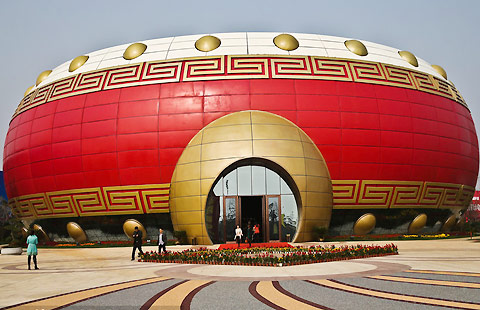
 Largest drum-shaped building in Hefei sets Guiness record
Largest drum-shaped building in Hefei sets Guiness record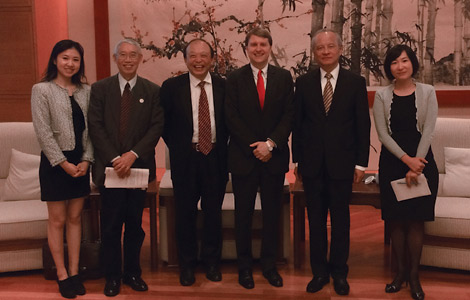
 Nixon Remembered
Nixon Remembered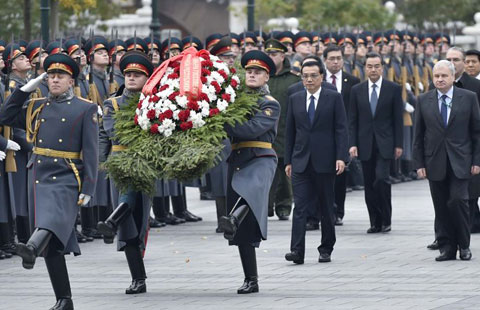
 Premier Li lays wreath at Tomb of the Unknown Soldier
Premier Li lays wreath at Tomb of the Unknown Soldier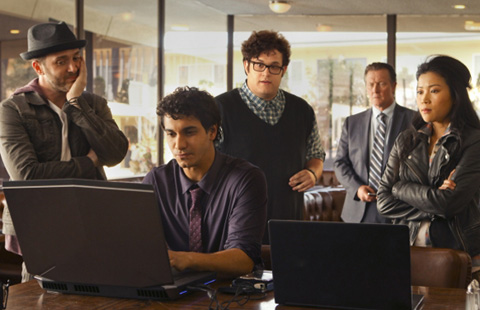
 Joint Scorpion venture soars in ratings
Joint Scorpion venture soars in ratings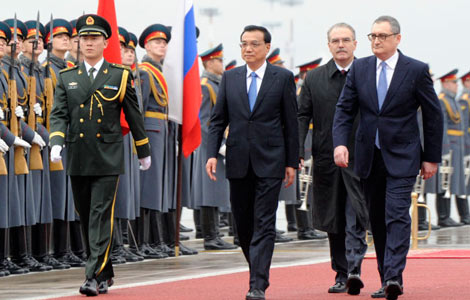
 Li opens doors on trade, energy
Li opens doors on trade, energy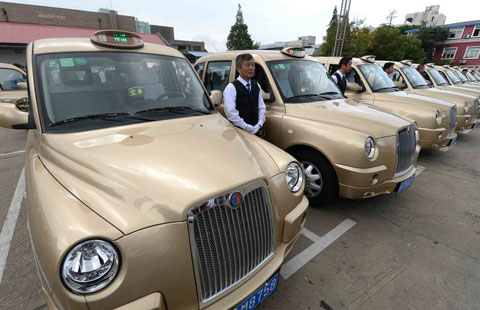
 Shanghai launches old-style cabs for special needs
Shanghai launches old-style cabs for special needs
Most Viewed
Editor's Picks

|

|

|

|

|

|
Today's Top News
High-speed rail deal part of $10b agreements
Chinese song video viral
Scorpion venture soars in ratings
China to promote all-round ties with Russia
School honored by governor
GM's sales in China rise 15%
Disney in China: Patience is its virtue
China slowdown is 'welcomed'
US Weekly

|

|
